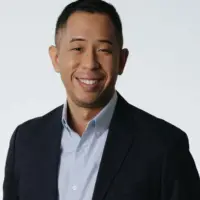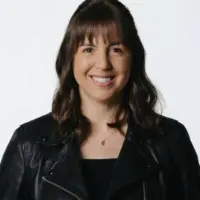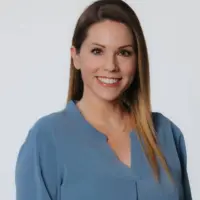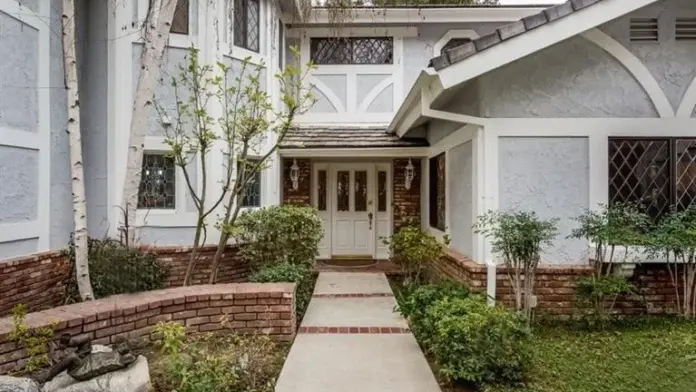About Evolve Teen Treatment Center – Agoura Hills
Evidence-Based, Individualized Care
Our treatment model is rooted in proven, evidence-based approaches, with a strong emphasis on Dialectical Behavior Therapy (DBT) and Cognitive Behavioral Therapy (CBT). All of our programs provide adherent DBT skills training to help teens build practical tools for emotion regulation, distress tolerance, interpersonal effectiveness, and mindfulness. We also integrate modalities like Motivational Interviewing, Seeking Safety, Relapse Prevention, Behavioral Activation, and SMART Recovery when appropriate. Every teen receives a customized treatment plan developed by our multidisciplinary team.
Residential, PHP, and IOP Programs
Evolve offers a full continuum of care, including residential treatment centers across California, as well as partial hospitalization (PHP), intensive outpatient (IOP), and virtual outpatient therapy and psychiatry. Our residential programs combine individual, family, and group therapy with psychiatry and a wide range of experiential therapies such as equine-assisted therapy, art, surf, music, drama, yoga, and fitness. Teens also receive daily academic support to help them stay on track with school.
Safe, Supportive Environment
With one of the highest client-to-staff ratios in the nation (3:1), we ensure 24/7 safety and individualized attention. Our homes provide a warm, comfortable setting while maintaining strict safety protocols, including line-of-sight supervision and 1:1 support when needed.
Family-Centered Approach
We work closely with families throughout treatment and beyond. Out-of-state families can join sessions virtually through HIPAA-compliant platforms. At discharge, we provide detailed aftercare planning, including family support, home contracts, and local provider referrals to ensure a smooth transition.
Accredited and Licensed Programs
Evolve is fully licensed and accredited by the Community Care Licensing Division (CCLD), CARF, and the Joint Commission. Our programs meet the highest standards in clinical excellence and compliance, giving families peace of mind that their teen is receiving safe, effective treatment.
Admissions and Insurance
Our Admissions Director, a licensed clinician, provides free assessments to help determine the best level of care for your teen. We accept most private insurance and can assist families with maximizing their benefits or securing single case agreements when needed.
Facility Overview
Latest Reviews
Thank you for sharing your experience. At Evolve, we are committed to providing a safe and supportive therapeutic environment for all our clients, and we're sorry to hear that your time here was challenging. Your feedback is invaluable and helps us ensure we create a space where everyone feels secure and respected.
We would appreciate the opportunity to learn more about your experience to better understand how we can improve. Please feel free to reach out to our team at grievances@evolvetreatment.com.
We value your input and thank you for bringing your concerns to our attention.
Thank you for taking the time to share your perspective. We are truly sorry to hear that your experience at our Agoura Hills program did not meet your expectations. At Evolve, we are committed to creating a safe, respectful, and supportive environment for all clients, and your feedback is important as we continually work to improve.
We would appreciate the opportunity to learn more about your concerns. Please feel free to reach out directly to our leadership team at grievances@evolvetreatment.com so we can better understand and address your experience.
Rehab Score
Gallery
Accepted Insurance



Other Forms of Payment
Self-pay involves paying for treatment out of your own pocket. You can use savings or credit, get a personal loan, or receive help from family and friends to fund your treatment. If you don't have insurance or your insurance plan doesn't cover a specific program, self-pay can help ensure you still get the care you need.
Private insurance refers to any kind of healthcare coverage that isn't from the state or federal government. This includes individual and family plans offered by an employer or purchased from the Insurance Marketplace. Every plan will have different requirements and out of pocket costs so be sure to get the full details before you start treatment.
Military members, veterans, and eligible dependents have access to specific insurance programs that help them get the care they need. TRICARE and VA insurance can help you access low cost or no cost addiction and mental health treatment. Programs that accept military insurance often have targeted treatment focused on the unique challenges military members, veterans, and their families face.
Addiction Treatments
Levels of Care
Drug and alcohol addiction often takes a heavy toll on one's body. Over time, a physical dependence can develop, meaning the body physiologically needs the substance to function. Detox is the process of removing drugs and/or alcohol from the body, a process that can be lethal if mismanaged. Medical detox is done by licensed medical professionals who monitor vital signs and keep you safe, healthy, and as comfortable as possible as you go through detox and withdrawal.
EVOLVE Residential Treatment Programs (RTC) support adolescents 12-17 years old struggling with mental health, addiction, and behavioral issues. At the Residential level of care, teens live on-site with 24-hour support and supervision. They believe in the positive power of the family dynamic, so their treatment centers look and feel like homes. They’re small, serene, and quiet, with never more than six teens at a time in any one residential center. Every resident feels like they’re in a personal, individualized recovery center designed to meet their specific therapeutic needs.
Their clinicians and discharge coordinators work closely with parents, schools, and referring providers to ensure a seamless, successful transition from treatment to daily life. The Evolve team gathers critical data and engages in dialogue regarding problem and treatment history, strengths and deficits, and avenues for growth. Their goal is sustainable, lifelong recovery. Teens finish their programs with the tools and motivation to evolve and grow after they leave. Upon discharge from the more supervised and structured elements of their programs, they provide a detailed transition plan to support our teens in the months and years to come.
Treatments
The goal of treatment for alcoholism is abstinence. Those with poor social support, poor motivation, or psychiatric disorders tend to relapse within a few years of treatment. For these people, success is measured by longer periods of abstinence, reduced use of alcohol, better health, and improved social functioning. Recovery and Maintenance are usually based on 12 step programs and AA meetings.
Drug rehab in California teaches participants constructive ways to stay clean and sober. Treatment revolves around helping individuals stop using the substance they are addicted to and learn healthy habits to avoid relapse.
Many of those suffering from addiction also suffer from mental or emotional illnesses like schizophrenia, bipolar disorder, depression, or anxiety disorders. Rehab and other substance abuse facilities treating those with a dual diagnosis or co-occurring disorder administer psychiatric treatment to address the person's mental health issue in addition to drug and alcohol rehabilitation.
A combined mental health and substance abuse rehab has the staff and resources available to handle individuals with both mental health and substance abuse issues. It can be challenging to determine where a specific symptom stems from (a mental health issue or an issue related to substance abuse), so mental health and substance abuse professionals are helpful in detangling symptoms and keeping treatment on track.
In California, substance abuse treatment programs can help individuals with any type of substance use disorders and co-occurring conditions. These rehab programs typically encompass various levels of care, including medically assisted detox, intensive outpatient, outpatient, residential rehab, and partial hospitalization. You can expect clinicians to utilize evidence-based therapies like cognitive behavioral therapy (CBT), dialectical behavioral therapy (DBT), and mindfulness to help you achieve and sustain your recovery. The rehab's clinical team can provide a comprehensive assessment to determine the appropriate level of care and medical support you may need.
Inpatient treatment for drug and alcohol addiction with a focus on mental health is a good fit for people who need closer monitoring and care. Treatment may occur in a hospital setting, a clinic, or a luxury rehab center. Mental health counselors and staff are available 24/7. Therapies typically include group and individual counseling, relapse prevention education, and emotional coping skills training.
Programs
Teen programs are designed to address the unique pressures teens face, pressures that can drive them to experiment with dangerous, addictive substances. They need programs that meet them exactly where they are and give them tools for long-term recovery. Therapy can help teenagers understand and work through underlying issues so they can reclaim the life ahead of them.
Clinical Services
CBT focuses on making connections between thoughts, feelings, and actions. It’s based on the belief that when negative thought patterns are identified and adjusted, positive changes in feelings and behavior can take place. When people think of therapy in general, CBT is what comes to mind: talk, think, talk more, then apply the concepts from discussion to daily behavior. At Evolve, they always focus on changing behavior. If the talk doesn’t lead to positive change, then they find something that does.
It’s no secret teens respond well to music and dancing. Expressive therapies like these improve self-understanding and teach productive ways to cope with uncomfortable feelings. Writing original lyrics helps identify and understand big emotions, and playing music has a magical way of simultaneously soothing and releasing those same emotions. Dance, like music, has an amazing capacity to unite mind, body, and soul in a single moment of pure joy and self-expression.
Dialectical Behavior Therapy (DBT) is a modified form of Cognitive Behavioral Therapy (CBT), a treatment designed to help people understand and ultimately affect the relationship between their thoughts, feelings, and behaviors. DBT is often used for individuals who struggle with self-harm behaviors, such as self-mutilation (cutting) and suicidal thoughts, urges, or attempts. It has been proven clinically effective for those who struggle with out-of-control emotions and mental health illnesses like Borderline Personality Disorder. DBT Group Therapy is a highly effective treatment for individuals with intense emotions, disrupted relationships, and impulsive behaviors. Evolve meets teens—as individuals and as groups—where they are in the moment, while maintaining a keen awareness of the necessity for change. Evolve uses DBT to help them understand and transform patterns of behavior such as self-harm, suicidal thinking, and substance abuse. DBT group therapy teaches teens to tolerate distress without making situations worse, be in the moment without judgment, observe and change strong emotions, and ask for what they want and need in an effective and productive way.
Equine therapy, aka equine-assisted therapy (EAT), is a form of experiential therapy that involves interactions and activities with horses. Horses have a unique sensitivity to human emotions, which makes equine therapy an effective and widely accepted therapeutic tool. Teens can address and break down barriers and resistance toward the therapeutic process through their connection with horses. Their equine specialists hold certifications in the use of horses in therapeutic setting and specialize in working with teenagers with substance abuse and mental health issues. Equine therapists are present during the therapeutic process and work collaboratively with their clinical team in the development and implementation of the individual treatment plan.
Experiential therapy is a form of therapy in which clients are encouraged to surface and work through subconscious issues by engaging in real-time experiences. Their surfing program is all about taking therapy into nature. The National Surf School and Instructors Association accredits their surf instructors, who specialize in using surfing as a therapeutic tool and transformative experience. Therapeutic hiking groups provide their teens a unique opportunity to connect with nature. Nature hikes offer opportunities to develop a new self-image, a new way of relating to others and the environment, and new ways to respond to the challenges of daily life. Boxing helps teens learn to strategize, apply tactics, work hard, play hard, and recognize the proper time and place for this type of interaction. Evolve residential treatment centers are equipped with gym facilities their teens can use when they have down-time or free time. They take weekly trips to the beach, movies, special hiking trails, museums, miniature golf courses, and more.
Research clearly demonstrates that recovery is far more successful and sustainable when loved ones like family members participate in rehab and substance abuse treatment. At Evolve they believe teens cannot be completely understood in isolation from their families. When possible, practical, and productive, they require family members or caregivers to participate in family therapy sessions at least once a week. They prefer families to attend sessions in person, however, they accommodate sessions by telephone or web chat if necessary. The primary therapist will determine how to conduct family sessions. In addition to the family therapy sessions, families participate in multi-family parent support groups held every Sunday. These group sessions allow for families, teens, and therapists to meet either as a large group or in small, intimate groups to collaborate and share their treatment experiences. Parents need support, too. And sometimes, they need to talk to other parents without kids around. They offer support groups designed to teach parents a new set of skills to help them cope with their new normal.
Group Therapy is a powerful therapeutic tool at all levels of treatment. Peer approval and acceptance means everything to teens. During group sessions, therapists help teens develop and explore interpersonal relationships and work on specific treatment goals. At Evolve, they use group therapy in a variety of ways. Their teens participate in recreational groups, daily process groups, and 12-Step meetings when appropriate.
In individual therapy, a patient meets one-on-one with a trained psychologist or counselor. Therapy is a pivotal part of effective substance abuse treatment, as it often covers root causes of addiction, including challenges faced by the patient in their social, family, and work/school life.
Life skills trainings involve all the skills a person must have in order to function successfully in the world. During treatment, they offer career and college counseling, vocational opportunities, educational support, and student advocacy. Each center is equipped with a state-of-the-art computing facility that enables students to access public and/or private online learning programs and resources.
Motivational Interviewing (MI) is a clinical approach to helping people with substance abuse issues and other conditions shift behavior in positive ways. It is more goal-oriented than traditional psychotherapy, as MI counselors directly attempt to get clients to consider making behavioral change (rather than wait for them to come to conclusions themselves). Its primary purpose is to resolve ambivalence and help clients become able to make healthy choices freely.
Trauma therapy addresses traumatic incidents from a client's past that are likely affecting their present-day experience. Trauma is often one of the primary triggers and potential causes of addiction, and can stem from child sexual abuse, domestic violence, having a parent with a mental illness, losing one or both parents at a young age, teenage or adult sexual assault, or any number of other factors. The purpose of trauma therapy is to allow a patient to process trauma and move through and past it, with the help of trained and compassionate mental health professionals.
Amenities
-
Private Setting
-
Gym
-
Swimming Pool
-
Day School
-
Residential Setting
-
Art Activities
Staff & Accreditations
Staff

Michelle Gross, LMFT
Chief Executive Officer

Jeff Skillen
Chief Growth Officer

Eddy Lai
Chief Financial Officer

Alyson Orcena, LMFT
Chief Clinical Officer

Megan Johnston, LMFT
Director of Admission
Accreditations

The Commission on Accreditation of Rehabilitation Facilities (CARF) is a non-profit organization that specifically accredits rehab organizations. Founded in 1966, CARF's, mission is to help service providers like rehab facilities maintain high standards of care.
CARF Accreditation: Yes
Accreditation Number: 281585

The Joint Commission, formerly known as JCAHO, is a nonprofit organization that accredits rehab organizations and programs. Founded in 1951, the Joint Commision's mission is to improve the quality of patient care and demonstrating the quality of patient care.
Joint Commission Accreditation: Yes
Accreditation Number: 588016

State Licenses are permits issued by government agencies that allow rehab organizations to conduct business legally within a certain geographical area. Typically, the kind of program a rehab facility offers, along with its physical location, determines which licenses are required to operate legally.
State License: California
License Number: 6009047730

LegitScript has reviewed Evolve Teen Treatment Center – Agoura Hills as part of their certification program, and has determined that it meets the LegitScript standards for legality, safety and transparency.
LegitScript verified in
Contact Information
6425 Chesebro Road
Agoura Hills, CA 91301













